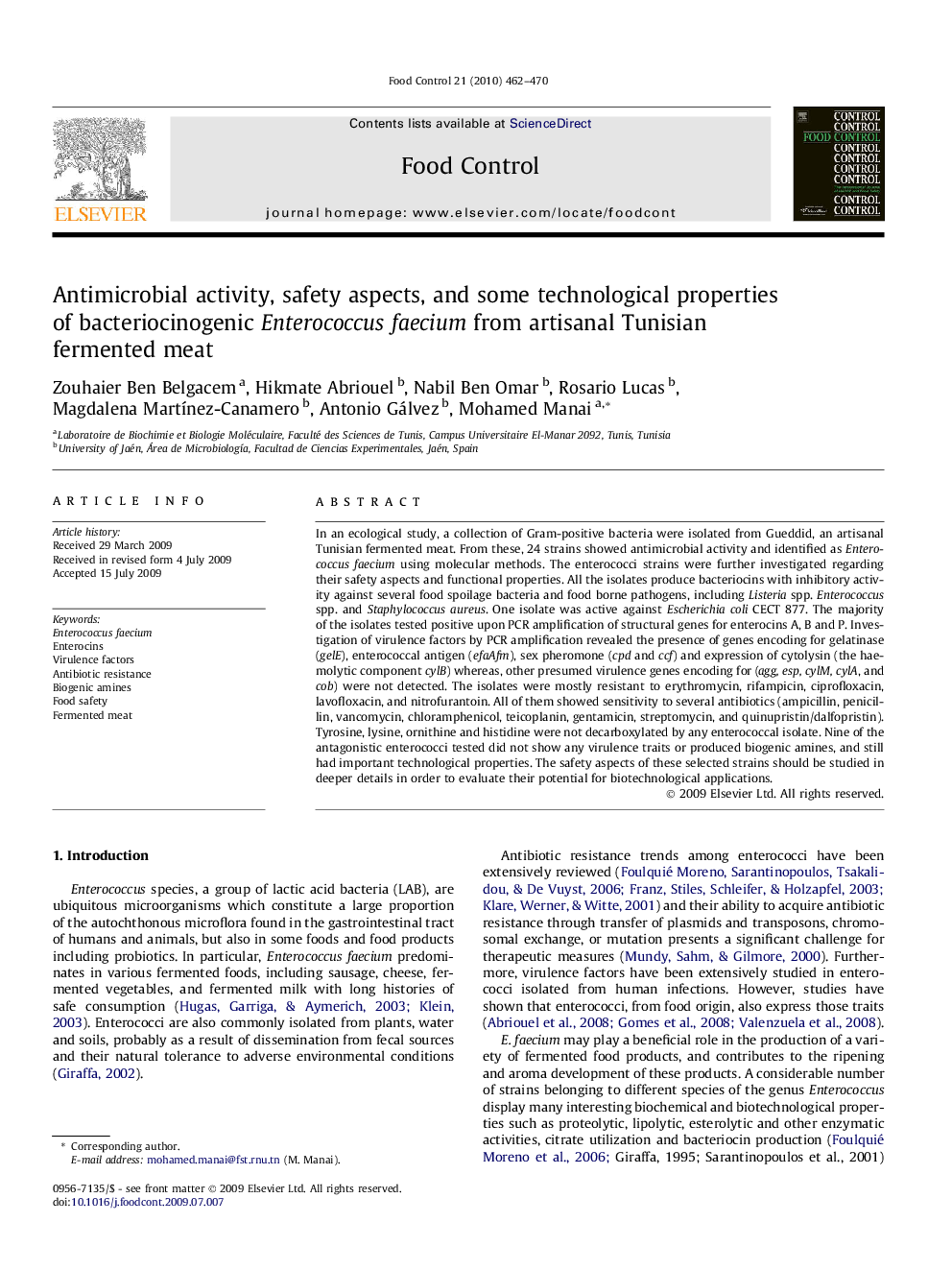| Article ID | Journal | Published Year | Pages | File Type |
|---|---|---|---|---|
| 4559905 | Food Control | 2010 | 9 Pages |
In an ecological study, a collection of Gram-positive bacteria were isolated from Gueddid, an artisanal Tunisian fermented meat. From these, 24 strains showed antimicrobial activity and identified as Enterococcus faecium using molecular methods. The enterococci strains were further investigated regarding their safety aspects and functional properties. All the isolates produce bacteriocins with inhibitory activity against several food spoilage bacteria and food borne pathogens, including Listeria spp. Enterococcus spp. and Staphylococcus aureus. One isolate was active against Escherichia coli CECT 877. The majority of the isolates tested positive upon PCR amplification of structural genes for enterocins A, B and P. Investigation of virulence factors by PCR amplification revealed the presence of genes encoding for gelatinase (gelE), enterococcal antigen (efaAfm), sex pheromone (cpd and ccf) and expression of cytolysin (the haemolytic component cylB) whereas, other presumed virulence genes encoding for (agg, esp, cylM, cylA, and cob) were not detected. The isolates were mostly resistant to erythromycin, rifampicin, ciprofloxacin, lavofloxacin, and nitrofurantoin. All of them showed sensitivity to several antibiotics (ampicillin, penicillin, vancomycin, chloramphenicol, teicoplanin, gentamicin, streptomycin, and quinupristin/dalfopristin). Tyrosine, lysine, ornithine and histidine were not decarboxylated by any enterococcal isolate. Nine of the antagonistic enterococci tested did not show any virulence traits or produced biogenic amines, and still had important technological properties. The safety aspects of these selected strains should be studied in deeper details in order to evaluate their potential for biotechnological applications.
